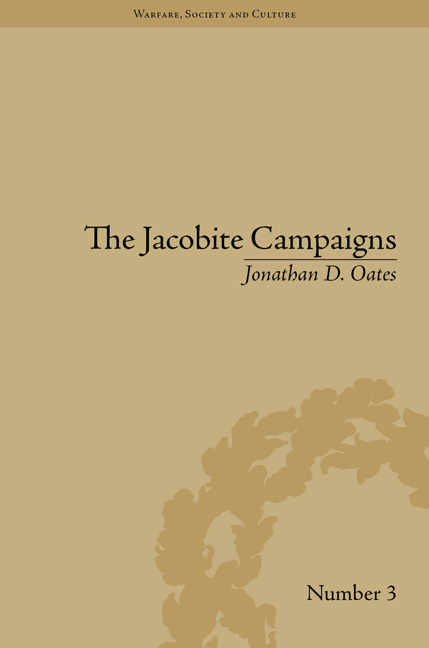Conclusion
Summary
The military resources of the British state overcame the challenge posed by the Jacobite rebellions. Success does not invite introspection or criticism, except for, in 1746–7, those individuals who failed to fulfil their obligations: Cope, Oglethorpe, Durand and Major Grant, but not Hawley nor Wade, all of who faced boards of inquiry or courts martial, though all save Grant were acquitted. However, the British method of war was not deemed to be in need of major overhaul. It had proved itself successful in the task allotted to it.
Yet these campaigns were not easy ones and presented numerous challenges to the British state's military resources. Some of these were similar to those faced abroad, but there were additional factors. They faced regular opponents from abroad, but mostly irregular enemies from the British mainland, whose style of campaigning and battlefield tactics were not their own. This meant they had to adapt their orthodox style to combat these enemies, just as British forces were to do in the American colonies and in Canada in the 1750s. Yet their resources included not only the regular established forces, supplemented by foreign auxiliaries, but also the militia and volunteer forces. There were a number of fortresses under their control, too.
Combating domestic rebellion and foreign incursion, both potential and real, necessitated a defensive strategy.
- Type
- Chapter
- Information
- The Jacobite CampaignsThe British State at War, pp. 195 - 198Publisher: Pickering & ChattoFirst published in: 2014



